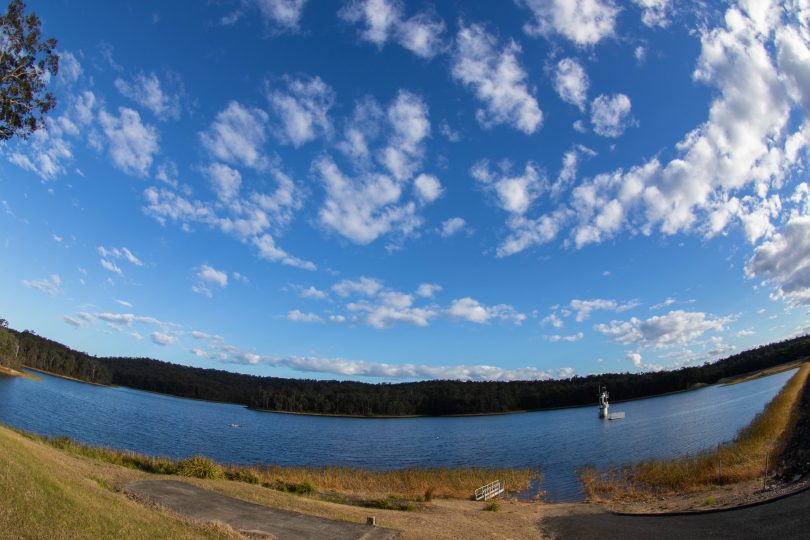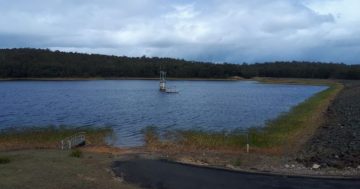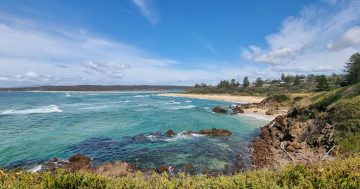
Eurobodalla’s water restrictions have been lifted. The water level in Deep Creek Dam is back over 90 per cent. Photo: ESC.
Water restrictions in the Eurobodalla have been lifted.
Mayor Liz Innes has thanked residents and visitors for their assistance over the last four months in securing the shire’s water supply.
“The community has been fantastic since restrictions were introduced in October. Combined with average rainfall since November, water storage at Deep Creek Dam is back over 90 per cent,” she says.
“We expect demand for water to fall now that school holidays have ended, however, the next few months are likely to be drier than average, so we are asking residents to remain mindful of using water wisely and observe Council’s permanent water-conservation measures.”
Permanent water-conservation measures include:
- Water gardens and lawns before 10 am or after 5 pm;
- No hosing of hard surfaces, except to clean away dangerous spills or remove algae or moss to prevent slips and falls – use a trigger-nozzle hose;
- Wash private vehicles, including boats and flushing motors, on grass areas. Where possible, use buckets with a final rinse by trigger-nozzle hose;
- Cover swimming pools and external spas when not in use.
When asked by Region Media, why not keep the formal water restrictions in place? A Council spokesperson said it was policy to lift them at this point in time.
“Eurobodalla water restrictions are determined by Council’s Water Restrictions Policy, and its associated plans, guided by the NSW Government,” the spokesperson says.
“The level of water stored in Deep Creek Dam, and river flows, trigger various levels of water restrictions. For example, level 1 water restrictions are triggered when the dam reaches 80 per cent capacity.
“Deep Creek Dam is operationally full at 95-97 per cent capacity. We are now at 92.5 per cent and heading into a lower demand period.”
The spokesperson stressed the importance of the permanent water-conservation measures and the communities support of the measures in the past.
“Since introducing these water conservation measures in 2007, Eurobodalla’s water consumption has been significantly reduced on a long-term basis,” the spokesperson says.
“When necessary, Council will implement and advertise water restrictions.”
Although the lifting of water restrictions is good news for the Eurobodalla, Cr Innes wants residents to spare a thought for the many communities in areas of NSW that continue to be severely impacted by drought.
“I’m calling on the NSW and Australian Governments to help these communities during this difficult time; they need to get out and meet people affected and see the challenges firsthand,” Cr Innes says.
Council continues to seek funding for its proposed southern dam near Bodalla, which it hopes will secure the Eurobodalla’s water supply long term.
More information on the shire’s permanent water conservation measures can be found on Council’s website.






